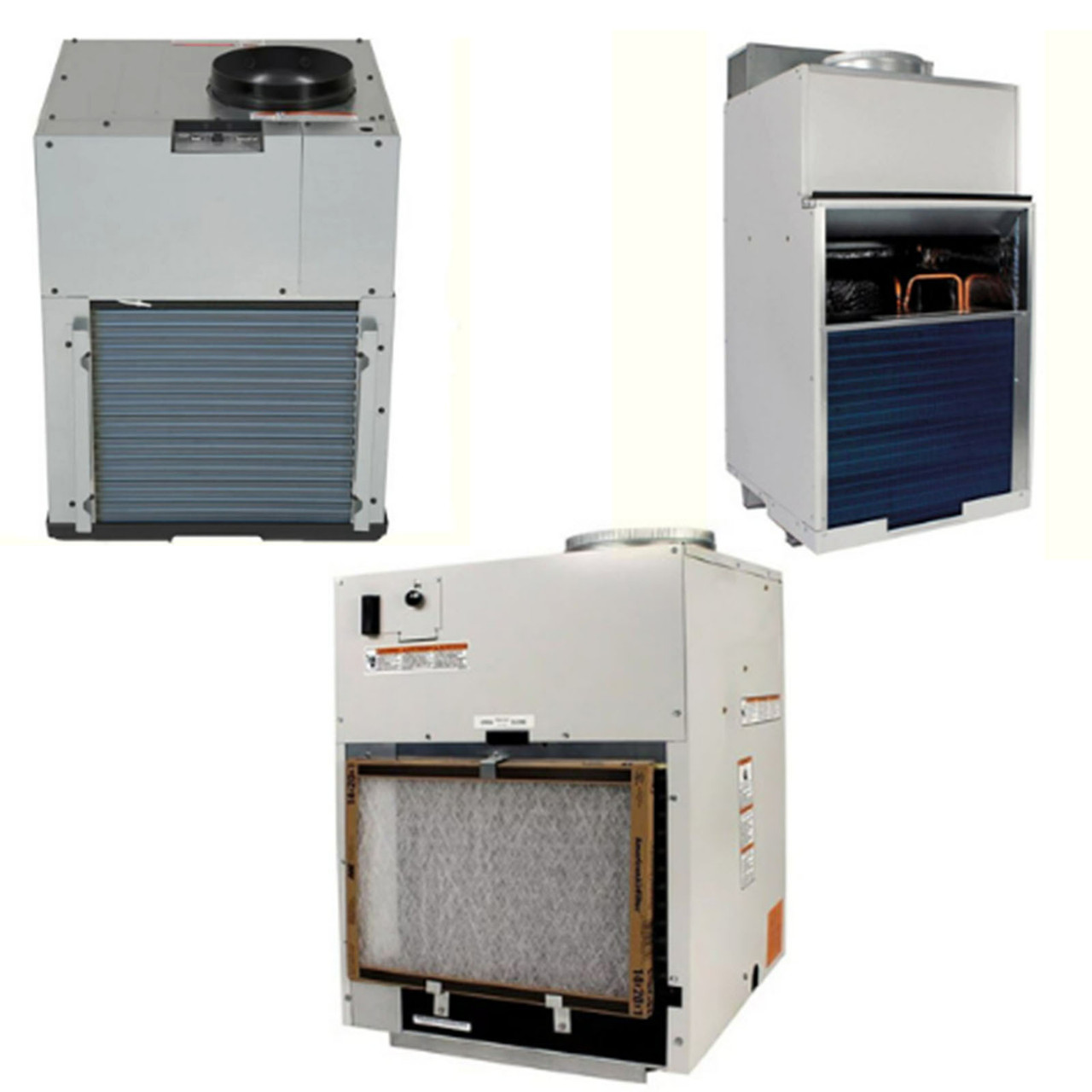How to Choose HVAC Units for Apartment Properties
Posted by NorthStock, Inc on Jun 21st 2024
Your property value and your tenants' living experience depends in part on the quality and reliability of your apartment HVAC units. Industrial and commercial HVAC professionals must choose these units carefully with consideration for budget, the size of each apartment, your climate region, and more.
Understanding the Specific Needs of Apartment Properties
The best apartment HVAC units provide a balance of comfort and energy efficiency while meeting the specific needs of the building.
Evaluating Property Size and Layout
Bigger isn't always better. Air conditioning units that are too big for the space will cool it faster, but they won't remove enough humidity and the room will not feel comfortable.
Tenant Comfort and Energy Efficiency
The tenant needs to be able to easily adjust the temperature in their space while controlling their energy costs. Older, inefficient, or poorly maintained units could lead to dissatisfaction among your tenants and may make it more challenging to retain them over the long term.
Compliance with Local Regulations and Building Codes
Apartment HVAC systems must comply with a variety of local regulations related to energy efficiency, fire safety, ventilation, air quality, refrigerant type, and installation requirements. Check within your jurisdiction to learn more about what features you need to look for in your HVAC units.
Types of HVAC Units Suitable for Apartment Properties
There are a variety of options for your apartment HVAC units, and each has its benefits and drawbacks:
Central HVAC Systems
Centralized systems can provide both heating and cooling and are ideal if your building already has the required ductwork—otherwise, a central HVAC can be expensive to install. Because it's just one primary system, it's generally easy to maintain.
However, central heating and cooling doesn't allow for individualized temperature control in each apartment. This may work in certain climate regions or where the tenant has the freedom to add a supplemental HVAC solution to their own apartment.
PTAC or VTAC Systems
Both PTAC and VTAC systems allow for individual climate control.
- PTAC: These units are installed through the wall and do not require ducting. Relatively inexpensive and easy to install, they can serve as a primary or secondary heating and cooling source for a single room.
- VTAC: Though more expensive to purchase and difficult to install than PTAC units, VTACs are quiet, powerful, and inconspicuous. While PTACs are out in the open, VTACs are installed in closets and other hidden spaces. They may be a preferable choice in higher-end facilities where aesthetics are important. Because they can be used to heat and cool multiple rooms, they're better for large, multi-room and multi-story apartments.

Mini-split Heat Pumps
Mini-split heat pumps are a simple and energy-efficient choice for apartment HVAC units. A mini-split can be easily installed with a small hole in the wall for piping to connect the indoor and outdoor components, and they are exceptionally quiet. They operate only at the speed required to cool the apartment, which allows for energy savings. These units also give the tenant zoned control over the temperature in various rooms of the apartment.
Key Factors to Consider When Choosing Apartment HVAC Units
Choosing an apartment HVAC system is a big decision, and it requires careful consideration of the following:
Capacity and Size
The size and layout of the apartment and the building will help you determine the unit size and capacity. For a large building with no existing ductwork, PTACs or mini-split heat pumps are a more economical solution than a central system. For large luxury apartments, VTACs provide individualized control with inconspicuous installation. In all cases, it's important to choose your AC and heating capacity based on the size of the room.
Energy Efficiency Ratings
Check the EER and SEER ratings of the apartment HVAC units to ensure you meet local environmental requirements and reduce utility costs for yourself or your tenants.
Installation and Maintenance Requirements
How much room do you have for installation? Can you easily access the unit for maintenance when required? Without a small closet or other tucked-away space, you won't have room for the vertical installation of a VTAC, for example.
Cost and Budget
Compare the upfront costs to the long-term energy savings or low maintenance requirements of certain units.
Brand Reliability and Warranties
A well-known brand might be more expensive upfront, but they're well-known for a reason. They're often proud to back their units with industry-leading warranties, and choosing their products may help you save money in the long run.
Shop Apartment HVAC Units from NorthStock
NorthStock is a leading commercial and industrial HVAC distributor offering competitive pricing and fast, free shipping to the lower 48 states. Contact us today to learn more about the best apartment HVAC units or to place your order.